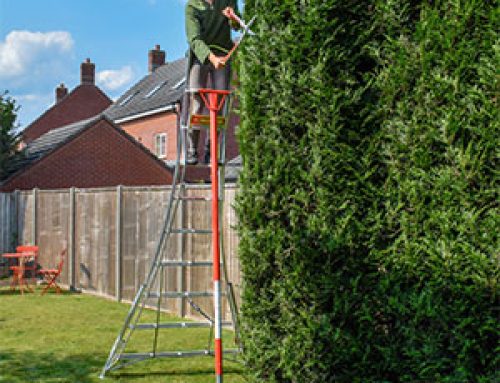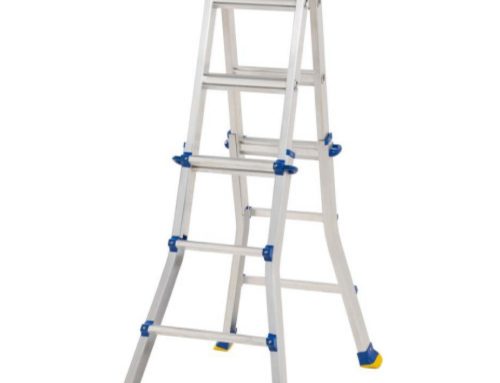First aid guidance published ahead of regulation changes
- Date:
- 2 September 2013
- A month ahead of changes to first aid regulations, the Health and Safety Executive (HSE) has published guidance to help businesses put in place appropriate arrangements for the provision of first aid.
From 1 October 2013, the Health and Safety (First Aid) Regulations 1981 will be amended, to remove the requirement for HSE to approve first aid training and qualifications.
The changes are part of HSE’s work to make it easier for businesses and other users to understand how to comply with health and safety law, whilst maintaining standards. They apply to businesses of all sizes and from all sectors.
Andy McGrory, HSE’s policy lead for First Aid, said: “From October, HSE will no longer approve first-aid training and qualifications. The guidance documents clarify what the law requires and provide practical help to businesses in assessing and understanding their first aid needs. Where a first aider is required, the guidance documents make it clear that the employer is free to select a training provider who is best suited to those needs.
“We have taken onboard comments and suggestions that we have received through our public consultations on the changes and from extended stakeholder discussions and business input to ensure the guidance provides everything an employer will need to manage their first aid requirements.”
Advance copies of ‘The Health and Safety (First-Aid) Regulations 1981’, ‘Regulations and Guidance (L74)’ and ‘Selecting a first-aid training provider (GEIS3)’ are now available on the HSE website.
L74 is aimed at all industries and takes account of the amendment to regulation 3(2), which removes the requirement for HSE to approve the training and qualifications of appointed first-aid personnel, and incorporates some additional amendments brought about by other previous legislative changes. Find a copy of the guidance at: http://www.hse.gov.uk/pubns/books/l74.htm
GEIS3 will help employers identify and select a competent training provider to deliver any first-aid training indicated by their first-aid needs assessment. The guidance on selecting a training provider outlines the options available to employers and includes a checklist for evaluating first aid training organisations, covering trainer competence, quality assurance systems and syllabus content. Find a copy of the guidance at: http://www.hse.gov.uk/pubns/geis3.htm
Public consultation, extended stakeholder discussions and input from businesses of all sizes demonstrated general support for the proposed guidance.
Legislative changes have been approved by the HSE Board and by Parliament.
The legal requirement for employers to ensure they make adequate provision for first aid, in accordance with their first aid needs assessment, will remain unchanged.
Managing for health and safety
HSE has launched new online guidance to help make it easier for larger organisations and businesses to understand how to manage health and safety. Managing for health and safety replaces Successful health and safety management (known to many as HSG65) refreshing and enhancing the existing content. you can find the new guides here:
http://www.hse.gov.uk/managing/index.htm
Directors prosecuted for worker death failings
Such a tragedy, please, avoid another – training and basic safety equipment may have stopped this. Always have guardrails and/or safety harnesses…
The co-directors of a former London scaffolding firm have been prosecuted after a trainee worker fell to his death from a poorly constructed scaffold in Westminster.
Sonny Holland, 20, from Orpington, sustained multiple head injuries in the six-metre fall at Whitehall Place on 24 April 2008. He died in hospital the following day.
Andrew Geer, 48, from Ashford in Kent and James Basquine, 60, from Dunstable, were responsible for the scaffold and for the young worker’s safety. The pair were sentenced at Southwark Crown Court on 2 September after an investigation by the Health and Safety Executive (HSE) found serious failings with the structure, and with their management of the work taking place on it.
The court heard that Sonny was working as a trainee scaffolder for Andrew Geer Scaffolding Ltd, now in liquidation, which was owned by Messrs Geer and Basquine. The company in turn had been sub-contracted to undertake scaffolding work by Andrew Geer Ltd, also owned by Mr Geer, and which has also been wound up.
Sonny fell backwards through a hole in the scaffold as he was dragging a ladder beam backwards to pass to a workmate.
HSE inspectors established that there was nothing in place to prevent or mitigate the fall, such as a guardrail or safety harness. They also found the trainee was inadequately supervised and had received no formal training for working safely at height.
Andrew Geer, of Bromley Green Road, Ruckinge, Ashford, was fined a total £5,000 and ordered to pay £1,000 towards prosecution costs after being found guilty of two separate breaches of the Work at Height Regulations 2005.
He was declared bankrupt in 2010 and was deemed as having no disposable or future income in order to pay a higher penalty.
James Basquine, of Ridgeway, Dunstable, was also fined a total of £5,000 and told to pay £1,000 towards costs for being found guilty of the same breaches. He too is bankrupt with limited means.
Both parties were found not guilty of further single breaches of the Work at Height Regulations. Mr Geer was also found not guilty of a single breach of the Construction (Design and Management) Regulations 2007.
Summing up at Southwark Crown Court Judge Taylor said both Mr Geer and Mr Basquine were “equally culpable in respect to this incident” and that the sentence imposed was “not a measure of the life of Sonny Holland”.
After sentencing, HSE inspector Andrew Verrall-Withers commented:
“Work at height on scaffolds is inherently fraught with risk, and it is vital that scaffolds are properly erected, adequately safeguarded and that all work is carefully controlled, managed and supervised.
“That clearly didn’t happen here and Sonny Holland was tragically killed as a result.
“It is important we secured justice in bringing this case to court, and we will continue to prosecute when clear safety failings are identified. As the offences here relate to 2008, the Judge was unable to use the current sentencing powers, which include possible imprisonment.”
Further information on safe working at height can be found online at www.hse.gov.uk/falls






Leave A Comment
You must be logged in to post a comment.